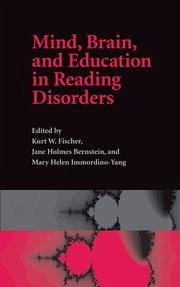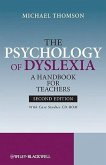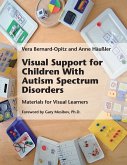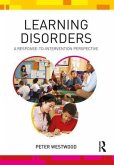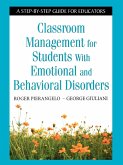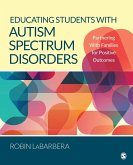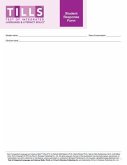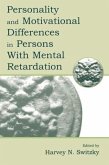Mind, Brain, and Education in Reading Disorders
Herausgeber: Fischer, Kurt W; Immordino-Yang, Mary Helen; Holmes Bernstein, Jane
Schade – dieser Artikel ist leider ausverkauft. Sobald wir wissen, ob und wann der Artikel wieder verfügbar ist, informieren wir Sie an dieser Stelle.
Mind, Brain, and Education in Reading Disorders
Herausgeber: Fischer, Kurt W; Immordino-Yang, Mary Helen; Holmes Bernstein, Jane
- Broschiertes Buch
- Merkliste
- Auf die Merkliste
- Bewerten Bewerten
- Teilen
- Produkt teilen
- Produkterinnerung
- Produkterinnerung
Explains why reading disorders have been hard to identify and how mind, brain and education can help to understand them.
Andere Kunden interessierten sich auch für
![The Psychology of Dyslexia The Psychology of Dyslexia]() Michael ThomsonThe Psychology of Dyslexia123,99 €
Michael ThomsonThe Psychology of Dyslexia123,99 €![Visual Support for Children With Autism Spectrum Disorders Visual Support for Children With Autism Spectrum Disorders]() Vera Bernard-OpitzVisual Support for Children With Autism Spectrum Disorders30,99 €
Vera Bernard-OpitzVisual Support for Children With Autism Spectrum Disorders30,99 €![Learning Disorders Learning Disorders]() Peter WestwoodLearning Disorders50,99 €
Peter WestwoodLearning Disorders50,99 €![Classroom Management for Students with Emotional and Behavioral Disorders Classroom Management for Students with Emotional and Behavioral Disorders]() Roger PierangeloClassroom Management for Students with Emotional and Behavioral Disorders33,99 €
Roger PierangeloClassroom Management for Students with Emotional and Behavioral Disorders33,99 €![Educating Students with Autism Spectrum Disorders Educating Students with Autism Spectrum Disorders]() Robin LabarberaEducating Students with Autism Spectrum Disorders92,99 €
Robin LabarberaEducating Students with Autism Spectrum Disorders92,99 €![Test of Integrated Language and Literacy Skills(tm) (Tills(tm)) Student Response Forms Test of Integrated Language and Literacy Skills(tm) (Tills(tm)) Student Response Forms]() Nickola NelsonTest of Integrated Language and Literacy Skills(tm) (Tills(tm)) Student Response Forms53,99 €
Nickola NelsonTest of Integrated Language and Literacy Skills(tm) (Tills(tm)) Student Response Forms53,99 €![Personality and Motivational Differences in Persons with Mental Retardation Personality and Motivational Differences in Persons with Mental Retardation]() Personality and Motivational Differences in Persons with Mental Retardation83,99 €
Personality and Motivational Differences in Persons with Mental Retardation83,99 €
Explains why reading disorders have been hard to identify and how mind, brain and education can help to understand them.
Produktdetails
- Produktdetails
- Verlag: Cambridge University Press
- Seitenzahl: 352
- Erscheinungstermin: 7. Mai 2012
- Englisch
- Abmessung: 226mm x 154mm x 17mm
- Gewicht: 555g
- ISBN-13: 9781107603226
- ISBN-10: 1107603226
- Artikelnr.: 34540461
- Herstellerkennzeichnung
- Libri GmbH
- Europaallee 1
- 36244 Bad Hersfeld
- gpsr@libri.de
- Verlag: Cambridge University Press
- Seitenzahl: 352
- Erscheinungstermin: 7. Mai 2012
- Englisch
- Abmessung: 226mm x 154mm x 17mm
- Gewicht: 555g
- ISBN-13: 9781107603226
- ISBN-10: 1107603226
- Artikelnr.: 34540461
- Herstellerkennzeichnung
- Libri GmbH
- Europaallee 1
- 36244 Bad Hersfeld
- gpsr@libri.de
Part I. What Is Reading, and What Are Reading Disorders? Looking to
Neuroscience, Evolution and Genetics: 1. Towards a grounded synthesis of
mind, brain and education for reading disorders: an introduction to the
field and this book Kurt W. Fischer, Mary Helen Immordino-Yang and Deborah
Waber; 2. An evolutionary perspective on reading and reading disorders Mary
Helen Immordino-Yang and Terrence W. Deacon; Essay: brain volume and the
acquisition of adaptive capacities Verne S. Caviness; 3. The genetics of
dyslexia: what is the phenotype? Albert M. Galaburda and Gordon F. Sherman;
Part II. Reading and the Growing Brain: Methodology and History: 4. A brief
history of time, phonology, and other explanations of developmental
dyslexia Maryanne Wolf and Jane Ashby; 5. Approaches to behavioural and
neurological research on learning disabilities: in search of a deeper
synthesis Robbie Case; 6. Growth cycles of mind and brain: analyzing
developmental pathways of learning disorders Kurt W. Fischer, L. Todd Rose
and Samuel P. Rose; Essay: cycles and gradients in development of the
cortex Robert W. Thatcher; 7. Brain bases of reading disabilities Francine
Benes and Juliana Paré-Blagoev; 8. The neural correlates of reading
disorder: functional magnetic resonance imaging Juliana Paré-Blagoev; 9.
Patterns of cortical connection in children with learning problems Frank H.
Duffy; Essay: the role of experience in brain development: adverse effects
of childhood maltreatment Martin H. Teicher; Part III. Watching Children
Read: 10. Finding common ground to promote dialogue and collaboration:
using case material to jointly observe children's behaviour Jane Holmes
Bernstein; 11. Analyzing the reading abilities of four boys: educational
implications Susan Brady; 12. First impressions: what four readers can
teach us Benita A. Blachman; 13. Analysis of reading disorders from a
neuropsychological perspective H. Gerry Taylor; 14. An
education/psychological perspective on the behaviors of three children with
reading disabilities Joseph K. Torgesen; Part IV. Reading Skills in the
Long Term: 15. The importance of comprehension in reading problems and
instruction Joseph C. Campione; Essay: bringing reading research to the
trenches Sandra Priest Rose; 16. What successful adults with dyslexia teach
educators about children Rosalie Fink; 17. Is a synthesis possible? Making
doubly sure in research and application David Rose.
Neuroscience, Evolution and Genetics: 1. Towards a grounded synthesis of
mind, brain and education for reading disorders: an introduction to the
field and this book Kurt W. Fischer, Mary Helen Immordino-Yang and Deborah
Waber; 2. An evolutionary perspective on reading and reading disorders Mary
Helen Immordino-Yang and Terrence W. Deacon; Essay: brain volume and the
acquisition of adaptive capacities Verne S. Caviness; 3. The genetics of
dyslexia: what is the phenotype? Albert M. Galaburda and Gordon F. Sherman;
Part II. Reading and the Growing Brain: Methodology and History: 4. A brief
history of time, phonology, and other explanations of developmental
dyslexia Maryanne Wolf and Jane Ashby; 5. Approaches to behavioural and
neurological research on learning disabilities: in search of a deeper
synthesis Robbie Case; 6. Growth cycles of mind and brain: analyzing
developmental pathways of learning disorders Kurt W. Fischer, L. Todd Rose
and Samuel P. Rose; Essay: cycles and gradients in development of the
cortex Robert W. Thatcher; 7. Brain bases of reading disabilities Francine
Benes and Juliana Paré-Blagoev; 8. The neural correlates of reading
disorder: functional magnetic resonance imaging Juliana Paré-Blagoev; 9.
Patterns of cortical connection in children with learning problems Frank H.
Duffy; Essay: the role of experience in brain development: adverse effects
of childhood maltreatment Martin H. Teicher; Part III. Watching Children
Read: 10. Finding common ground to promote dialogue and collaboration:
using case material to jointly observe children's behaviour Jane Holmes
Bernstein; 11. Analyzing the reading abilities of four boys: educational
implications Susan Brady; 12. First impressions: what four readers can
teach us Benita A. Blachman; 13. Analysis of reading disorders from a
neuropsychological perspective H. Gerry Taylor; 14. An
education/psychological perspective on the behaviors of three children with
reading disabilities Joseph K. Torgesen; Part IV. Reading Skills in the
Long Term: 15. The importance of comprehension in reading problems and
instruction Joseph C. Campione; Essay: bringing reading research to the
trenches Sandra Priest Rose; 16. What successful adults with dyslexia teach
educators about children Rosalie Fink; 17. Is a synthesis possible? Making
doubly sure in research and application David Rose.
Part I. What Is Reading, and What Are Reading Disorders? Looking to
Neuroscience, Evolution and Genetics: 1. Towards a grounded synthesis of
mind, brain and education for reading disorders: an introduction to the
field and this book Kurt W. Fischer, Mary Helen Immordino-Yang and Deborah
Waber; 2. An evolutionary perspective on reading and reading disorders Mary
Helen Immordino-Yang and Terrence W. Deacon; Essay: brain volume and the
acquisition of adaptive capacities Verne S. Caviness; 3. The genetics of
dyslexia: what is the phenotype? Albert M. Galaburda and Gordon F. Sherman;
Part II. Reading and the Growing Brain: Methodology and History: 4. A brief
history of time, phonology, and other explanations of developmental
dyslexia Maryanne Wolf and Jane Ashby; 5. Approaches to behavioural and
neurological research on learning disabilities: in search of a deeper
synthesis Robbie Case; 6. Growth cycles of mind and brain: analyzing
developmental pathways of learning disorders Kurt W. Fischer, L. Todd Rose
and Samuel P. Rose; Essay: cycles and gradients in development of the
cortex Robert W. Thatcher; 7. Brain bases of reading disabilities Francine
Benes and Juliana Paré-Blagoev; 8. The neural correlates of reading
disorder: functional magnetic resonance imaging Juliana Paré-Blagoev; 9.
Patterns of cortical connection in children with learning problems Frank H.
Duffy; Essay: the role of experience in brain development: adverse effects
of childhood maltreatment Martin H. Teicher; Part III. Watching Children
Read: 10. Finding common ground to promote dialogue and collaboration:
using case material to jointly observe children's behaviour Jane Holmes
Bernstein; 11. Analyzing the reading abilities of four boys: educational
implications Susan Brady; 12. First impressions: what four readers can
teach us Benita A. Blachman; 13. Analysis of reading disorders from a
neuropsychological perspective H. Gerry Taylor; 14. An
education/psychological perspective on the behaviors of three children with
reading disabilities Joseph K. Torgesen; Part IV. Reading Skills in the
Long Term: 15. The importance of comprehension in reading problems and
instruction Joseph C. Campione; Essay: bringing reading research to the
trenches Sandra Priest Rose; 16. What successful adults with dyslexia teach
educators about children Rosalie Fink; 17. Is a synthesis possible? Making
doubly sure in research and application David Rose.
Neuroscience, Evolution and Genetics: 1. Towards a grounded synthesis of
mind, brain and education for reading disorders: an introduction to the
field and this book Kurt W. Fischer, Mary Helen Immordino-Yang and Deborah
Waber; 2. An evolutionary perspective on reading and reading disorders Mary
Helen Immordino-Yang and Terrence W. Deacon; Essay: brain volume and the
acquisition of adaptive capacities Verne S. Caviness; 3. The genetics of
dyslexia: what is the phenotype? Albert M. Galaburda and Gordon F. Sherman;
Part II. Reading and the Growing Brain: Methodology and History: 4. A brief
history of time, phonology, and other explanations of developmental
dyslexia Maryanne Wolf and Jane Ashby; 5. Approaches to behavioural and
neurological research on learning disabilities: in search of a deeper
synthesis Robbie Case; 6. Growth cycles of mind and brain: analyzing
developmental pathways of learning disorders Kurt W. Fischer, L. Todd Rose
and Samuel P. Rose; Essay: cycles and gradients in development of the
cortex Robert W. Thatcher; 7. Brain bases of reading disabilities Francine
Benes and Juliana Paré-Blagoev; 8. The neural correlates of reading
disorder: functional magnetic resonance imaging Juliana Paré-Blagoev; 9.
Patterns of cortical connection in children with learning problems Frank H.
Duffy; Essay: the role of experience in brain development: adverse effects
of childhood maltreatment Martin H. Teicher; Part III. Watching Children
Read: 10. Finding common ground to promote dialogue and collaboration:
using case material to jointly observe children's behaviour Jane Holmes
Bernstein; 11. Analyzing the reading abilities of four boys: educational
implications Susan Brady; 12. First impressions: what four readers can
teach us Benita A. Blachman; 13. Analysis of reading disorders from a
neuropsychological perspective H. Gerry Taylor; 14. An
education/psychological perspective on the behaviors of three children with
reading disabilities Joseph K. Torgesen; Part IV. Reading Skills in the
Long Term: 15. The importance of comprehension in reading problems and
instruction Joseph C. Campione; Essay: bringing reading research to the
trenches Sandra Priest Rose; 16. What successful adults with dyslexia teach
educators about children Rosalie Fink; 17. Is a synthesis possible? Making
doubly sure in research and application David Rose.

